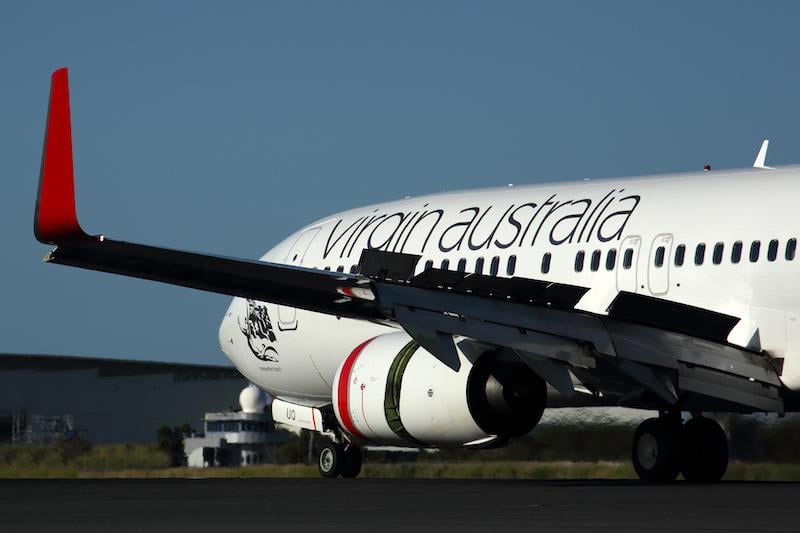
Two Virgin Australia 737-800s have been grounded after engine parts were identified as being falsely certified.
Virgin Australia Airlines has discovered two uncertified engine parts on separate Boeing 737 aircraft in its fleet that are linked to a UK-based company found to have been supplying falsely certified components.
Following the discovery of a first false documented part last week—reported to be a low-pressure turbine blade on a CFM56 engine—Bloomberg News reported Sept. 18 that Virgin Australia has since found a second component sourced from parts broker AOG Technics.
The second instance is reportedly a seal, located on an inner high-pressure turbine nozzle on a CFM56 engine attached to the 737 aircraft. Bloomberg reported that the narrowbody aircraft is currently undergoing maintenance in Brisbane where the part is being removed. The first aircraft discovered to contain a falsified part has since returned to service following its removal earlier in September.
Aviation Week has contacted Virgin Australia to clarify the timeline for when the grounded aircraft will return to service and the inspection processes it is undertaking to identify potentially more bogus components across its fleet.
As well as Virgin Australia, U.S. carrier Southwest Airlines has also been named as an airline impacted by the supply of false parts. The airline last week removed two parts traced to AOG Technics from one CFM56-powered 737 aircraft, Bloomberg reported.
The bogus parts issue was first raised by an unnamed maintenance shop in late July which discovered falsified documentation related to AOG Technics sourced parts, Aviation Week revealed earlier in September.
Since then, an ongoing probe by manufacturers is seeking to identify more counterfeit parts in the market linked to the broker. Regulators, airlines, and MROs are also reviewing records to establish if more parts sourced from AOG Technics are in circulation.
Earlier in September, engine manufacturer CFM International—a joint venture between GE Aerospace and Safran—filed a lawsuit in the UK against AOG Technics to force it to release CFM parts in its possession along with documentation relating to component transactions.
To date, CFM says approximately 78 falsified records have been identified. Sixty-eight engines are believed to contain undocumented parts related to the CFM56, while two are linked to the CF6 engine, which powers several Boeing and Airbus widebody aircraft variants. Earlier in September, Pratt & Whitney told Aviation Week that it was also investigating to determine whether any of its legacy engine platforms have been impacted.
None of the OEMs have any affiliation with the broker, which since the breaking of the story, has removed its website and LinkedIn profiles.





